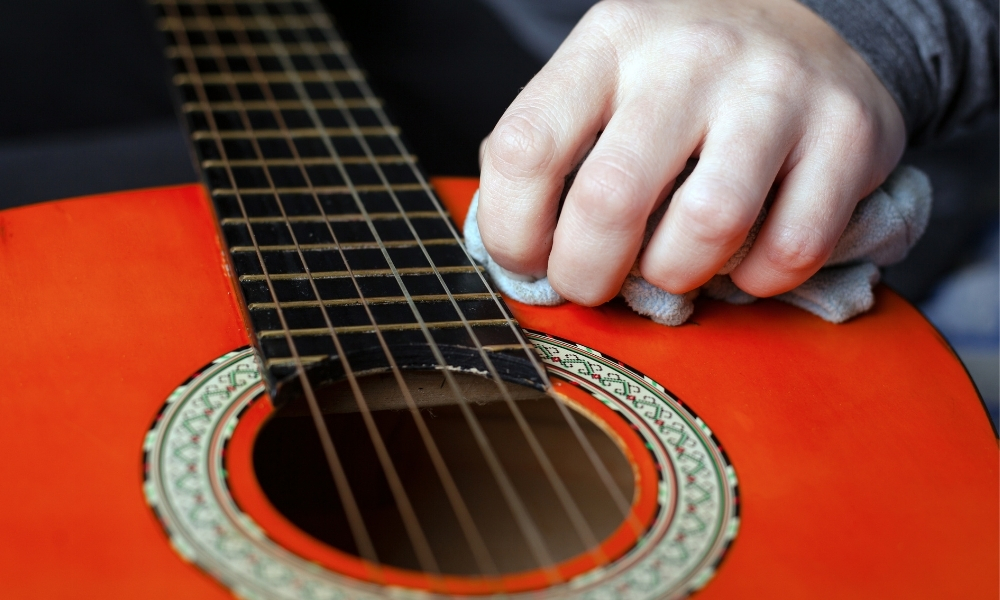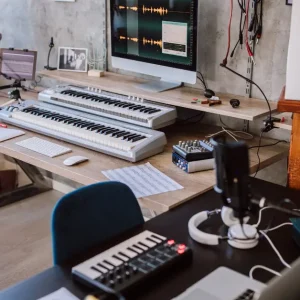Playing a musical instrument is incredibly fulfilling. It is an experience that can help students develop useful skills that will last a lifetime, one of which is the discipline involved in keeping your instrument in tip-top shape. A neglected instrument eventually becomes uncomfortable to play, the music it produces doesn’t sound quite as pleasant, and the entire thing can quickly become unsanitary.
Musicians should always work to keep their musical equipment working and looking its best. This will enable you to produce quality sound and continue to grow your skills. That means taking the time to clean and maintain their instruments on a regular basis. This guide will walk you through a few of the main reasons to clean your instrument, plus offer some suggestions on how to do it.
Why You Musical Instrument Cleaning is So Important

Proper care gives musicians a chance to connect with their instruments without actually playing them. They learn about the physical construction, develop discipline, learn patience, as well as:
Keep Sound Quality High
Keeping all the parts of a car’s engine clean and well-maintained will result in a reliable driving experience. The same applies to a musical instrument, as it can’t possibly function well or create beautiful music if it’s dirty, dusty, or unkempt. Spending time to tidy it up, make it presentable, and remove grime, grease, or other build-ups will keep your tonal quality high.
Ensure Their Instruments Will Last
One of the quickest ways to damage an instrument is to skimp on cleaning or maintenance. You should regularly wipe yours down and remove foreign particles from pipes or insides. Regular cleanings can also prevent blockages of airways or vibratory parts that produce sound. An instrument suffering from neglect will eventually stop working properly.
Feel Good
When you care for your instrument, your instrument cares for you. Caring for your instrument and putting time into keeping it in good shape will help you appreciate the instrument — and the music you produce together — that much more exciting.
Taking good care of an instrument can feel like a chore, and it certainly can be. Proper maintenance is ultimately rewarding, though, and ensures yours will stay with you for many years to come.
When to Clean and Maintain Your Instrument

It might seem that an instrument that sounds good doesn’t need cleaning or maintenance, but don’t fall into that trap. Regular cleaning leads to making better music! How often and when to clean your instrument depends on the type you have, how frequently you play it, and considerations such as:
Hygiene
It’s a great idea to wipe down your instrument often to avoid germs and practice good hygiene. Components such as mouthpieces need more frequent cleaning than keys, but all instrument surfaces can hold germs. Hygiene here is equivalent to human hygiene, so sanitize your musical instrument frequently, just like you wash your hands every time you use the restroom.
Regularity
Regularly cleaning your instrument is important. You’ll want to give it a proper deep cleaning on a consistent basis, which means restringing it, tuning it, or replacing parts as needed. You’ll want to replace the parts more often if you play a lot or tend to be hard on your instrument. Those who play less often or have a gentler approach can replace parts less frequently.
Frequency
Get in the habit of cleaning and tuning your instrument after you play it. Wipe down the body and mouthpieces so it’s clean and ready to go the next time you’re ready to play. That will also help you avoid getting any oils, products, or other cleaning agents on the hands, mouth, or skin.
Having your instrument clean and ready to play may also increase how often you want to practice. You’ll be much more likely to grab it and play something on a whim if you know it’s ready to go. That aspect is just one more way the entire musical experience is more satisfying with a well-maintained instrument.
How to Clean and Maintain Your Instrument

Understanding why musical instrument cleaning is so important is one thing, but knowing how to do it is another. Here are some general tips for maintenance and repair, but anyone with specific questions should contact a professional. They’ll be able to advise you on best practices for instrument cleaning.
Be Gentle and Strong
You should be strong — but not forceful — when cleaning, just like when you’re playing. A key or string played flimsily doesn’t make a high-quality sound, after all, and you’ll want to apply a moderate amount of pressure when cleaning your instrument as well. Respect its construction and be especially gentle around areas where two materials or pieces of the instrument join.
Don’t Go Overboard With Products
You’ll likely use sprays, oils, or other liquid substances to clean and maintain your instrument, but remember that less is more. Overusing products can cause them to build up in hard-to-reach compartments or small spaces and ultimately corrode your instrument. You should also choose those that are safe on the skin, since the instrument comes close to your face, eyes, and mouth. Often a little water and elbow grease can go a long way.
Keep Replacement Pieces On Hand
Violin or guitar strings can snap. Saxophone reeds split. Drumsticks can break. Being prepared with spare pieces will make it easier to get around to fixing your instrument.
These cleaning tips are universal, regardless of which type of instrument you have. Following these approaches will help you make sure your instrument investment lasts as long as possible.
Get Help Caring for Your Instrument
The team at Sloan School of Music loves teaching others to play and care for their instruments. Our experts can help you with the the process of musical instrument cleaning and maintenance, plus recommend the right products or replacement parts. If you have any questions about maintaining your instrument, or are interested in signing up for music lessons to further your skills, contact Sloan School of Music today.








